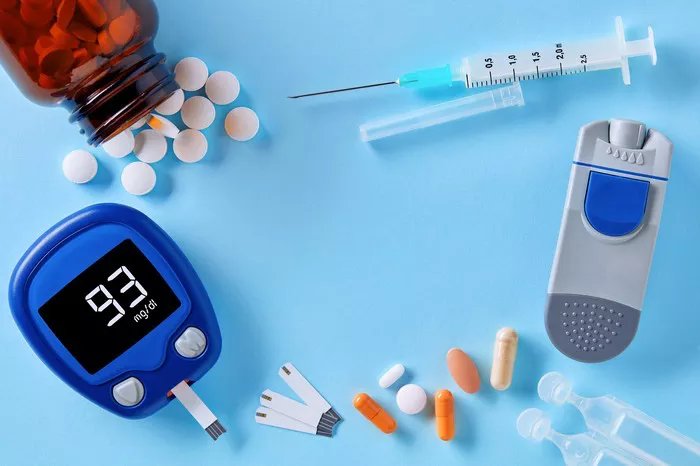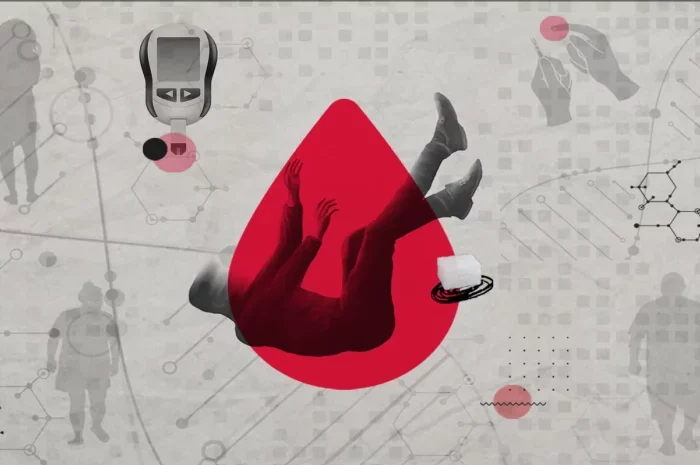Neonatal hypoglycemia is a critical condition characterized by abnormally low blood glucose levels in newborns. It is a common issue, particularly in preterm infants and those born to diabetic mothers. Understanding the duration of neonatal hypoglycemia is essential for healthcare providers to manage and mitigate potential complications effectively. This article delves into the various aspects that influence how long neonatal hypoglycemia lasts, exploring the underlying mechanisms, risk factors, and management strategies.
What is Neonatal Hypoglycemia?
Neonatal hypoglycemia is defined as a blood glucose level below the normal range for newborns, typically less than 40-45 mg/dL (2.2-2.5 mmol/L) in the first few hours of life. However, there is no universally accepted threshold, and the definition can vary based on factors such as the infant’s age and health status.
Physiological Background
During pregnancy, the fetus relies on maternal glucose for energy, with glucose crossing the placenta. After birth, the newborn must adapt to intermittent feeding and endogenous glucose production. This transition involves complex metabolic adjustments, including glycogenolysis, gluconeogenesis, and lipolysis. Inadequate glucose supply or impaired metabolic adaptation can result in hypoglycemia.
Risk Factors for Neonatal Hypoglycemia
Several factors increase the risk of neonatal hypoglycemia, including:
Maternal Diabetes: Infants born to mothers with diabetes (both gestational and pregestational) are at higher risk due to hyperinsulinemia induced by maternal hyperglycemia.
Preterm Birth: Preterm infants often have inadequate glycogen stores and immature metabolic pathways.
Intrauterine Growth Restriction (IUGR): These infants have decreased glycogen reserves and altered metabolic function.
Perinatal Stress: Conditions like asphyxia and infection can disrupt glucose homeostasis.
Large for Gestational Age (LGA): Often seen in infants of diabetic mothers, LGA infants have increased insulin levels.
Small for Gestational Age (SGA): These infants have limited energy reserves and impaired gluconeogenesis.
Clinical Presentation and Diagnosis
Symptoms of neonatal hypoglycemia can be subtle and nonspecific, including jitteriness, poor feeding, lethargy, apnea, and seizures. Early recognition and diagnosis are crucial. Blood glucose monitoring is recommended for at-risk infants, typically within the first few hours of life and periodically thereafter.
Diagnostic Approaches
The diagnosis of neonatal hypoglycemia relies on blood glucose measurement. Continuous glucose monitoring systems (CGMS) are increasingly used for real-time monitoring, providing a more comprehensive glucose profile. Laboratory evaluation might also include insulin levels, cortisol, growth hormone, and metabolic studies to rule out underlying disorders.
Duration of Neonatal Hypoglycemia
The duration of neonatal hypoglycemia varies widely depending on several factors, including the underlying cause, gestational age, and the infant’s overall health.
Transient Hypoglycemia
In most cases, neonatal hypoglycemia is transient, resolving within a few hours to days as the newborn’s metabolic pathways mature and feeding is established. For instance:
Infants of Diabetic Mothers: Hypoglycemia typically resolves within the first 24-48 hours as the infant’s insulin levels normalize postnatally.
Preterm Infants: These infants might experience hypoglycemia for a slightly longer period due to immature hepatic glycogen stores and enzyme systems but generally stabilize within the first week.
Prolonged Hypoglycemia
In some instances, hypoglycemia can persist beyond the initial few days, indicating underlying conditions such as:
Endocrine Disorders: Conditions like hyperinsulinism, adrenal insufficiency, or growth hormone deficiency may prolong hypoglycemia.
Metabolic Disorders: Inborn errors of metabolism, such as glycogen storage diseases or fatty acid oxidation defects, can result in persistent hypoglycemia.
Iatrogenic Causes: Overzealous glucose administration or inadequate caloric intake can also contribute to prolonged hypoglycemia.
Impact of Birth Weight and Gestational Age
Both birth weight and gestational age significantly impact the duration of hypoglycemia. SGA and LGA infants, as well as preterm neonates, are more prone to prolonged episodes due to their metabolic vulnerabilities. SGA infants often exhibit hypoglycemia due to limited glycogen and fat stores, while LGA infants, particularly those of diabetic mothers, have increased insulin levels that take time to normalize.
Management of Neonatal Hypoglycemia
Effective management of neonatal hypoglycemia involves prompt recognition, monitoring, and intervention to maintain blood glucose levels within the normal range and prevent potential complications.
Initial Management
Early Feeding: Initiating early and frequent feeding with breast milk or formula can help stabilize blood glucose levels.
Intravenous Glucose: For infants with severe or symptomatic hypoglycemia, intravenous glucose administration is necessary. The initial bolus is usually followed by a continuous glucose infusion.
Monitoring: Regular blood glucose monitoring is essential to assess the efficacy of interventions and adjust treatment accordingly.
Long-Term Management
For infants with persistent hypoglycemia, identifying and addressing the underlying cause is critical. This might involve:
Endocrinological Evaluation: Assessing for disorders like hyperinsulinism, hypopituitarism, or adrenal insufficiency.
Metabolic Workup: Screening for inborn errors of metabolism that could affect glucose homeostasis.
Nutritional Support: Ensuring adequate caloric intake, sometimes requiring specialized formulas or dietary adjustments.
Pharmacological Interventions
In cases of refractory hypoglycemia, pharmacological agents may be necessary. These include:
Diazoxide: Used to manage hyperinsulinism by inhibiting insulin release.
Hydrocortisone: For infants with adrenal insufficiency.
Growth Hormone: In cases of growth hormone deficiency affecting glucose regulation.
Prognosis and Long-Term Outcomes
The prognosis for infants with neonatal hypoglycemia is generally good, especially when promptly and effectively managed. However, the duration and severity of hypoglycemia can influence long-term outcomes.
Neurodevelopmental Impact
Severe or prolonged hypoglycemia has been associated with neurodevelopmental impairments, including cognitive deficits, motor delays, and behavioral issues. Early and aggressive management is crucial to minimize these risks.
Monitoring and Follow-Up
Infants with a history of significant hypoglycemia should undergo regular follow-up to monitor growth, development, and metabolic status. Early intervention programs can be beneficial for those exhibiting developmental delays.
Conclusion
The duration of neonatal hypoglycemia varies based on numerous factors, including the underlying etiology, gestational age, birth weight, and overall health of the infant. While most cases resolve within a few days, some infants may experience prolonged hypoglycemia requiring extensive evaluation and management. Early recognition, continuous monitoring, and appropriate interventions are essential to ensure optimal outcomes and minimize long-term complications. As research in neonatal care advances, further insights into the mechanisms and management of neonatal hypoglycemia will continue to improve the prognosis for affected infants.
Related topics:
Why Do I Get Hypoglycemia After Eating


























